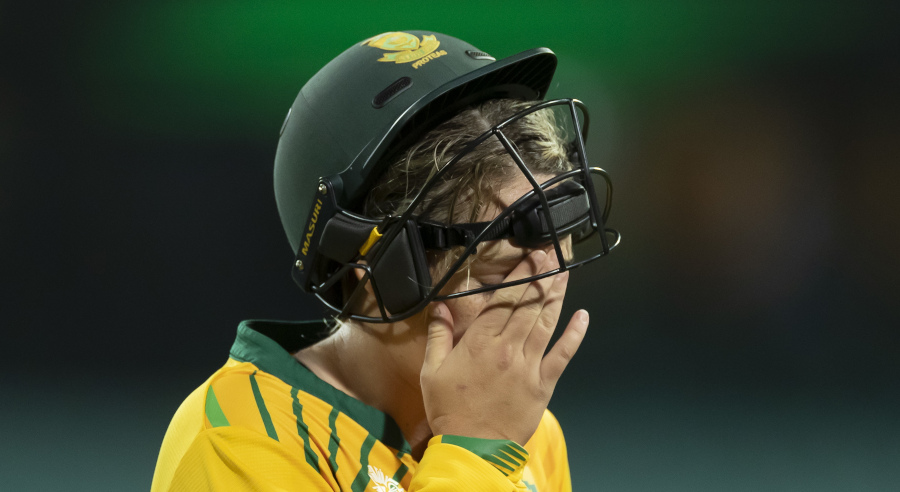Sports minister Nathi Mthethwa gave cricket the hard reset it needed, but that drastic step will mean nothing if the corrective action isn’t carefully considered, writes RYAN VREDE.
On Friday Mthethwa set fire to Cricket South Africa, cricket’s deeply dysfunctional governing body, by announcing that he intends to invoke section 13(5) of the National Sports Act. It effectively strips CSA of its recognition as the ruling authority of cricket in South Africa.
The interim board, appointed by Mthethwa, but constantly undermined by the members’ council, released a statement that captured the gravity of the situation.
‘It is indeed a very sad day for our country, for cricket, for the millions of South African fans who love the game and the sponsors who have committed to cricket and its grassroots development. But it is a specifically sad day for the players, staff and others whose livelihoods are at stake,’ it read in part.
Mthethwa wants to move quickly to reappoint a new, majority independent board, in order to mitigate the impact his decision will have. He is especially concerned about appeasing the International Cricket Council, whom he is communicating with to stall a constitutionally mandated response of banning South Africa from international cricket.
This can’t, however, be a rushed job. CSA has been gutted and will have to be built from the ground up. That process needs to be carefully considered.
I wrote last week that it was time to dismantle the toxic body. Now that the minister has, the incoming board must set up a governance structure that prioritises maximum transparency.
Previously, the members’ council was set up for maximum power retention with almost no accountability. It appointed the CSA board, which in turn oversaw all executive functions. These two centres of power operated with almost zero oversight. Given this governance structure, it should be easier to understand why the members’ council would be so vehemently opposed to a majority independent board.
Any governance structure that mimics this lays a foundation for future pain and the almost certain destruction of cricket in South Africa.
With such a separation of powers, an independent board should, in theory, hold its affiliates to far higher standards than its predecessor did. The vast majority of affiliates are either broke or on the brink thereof. They have failed in a myriad key-performance areas, leaving the game in all regions and at all levels – save for schools, clubs, universities and franchises with deep pockets – in a dire state.
The incoming board must govern proactively, not reactively as its predecessor did. There needs to be public transparency in this regard, because they serve the game and the game belongs to the people.
Restoring faith in governance must also be a priority because presently CSA has zero commercial appeal. Commercial partners have run far away. A potential ICC ban means there will be no games and therefore no broadcast revenue – while the section 13(5) action means CSA’s governmental grant stops immediately. With cash reserves low, and no significant sources of income, CSA faces financial ruin.
Rehabilitation will begin with draining the swamp that is the members’ council.
There are clearly obstructionist forces at play in this body. They need to be identified, disempowered and driven out. They are enemies of the game, drunk on power and obsessed with self. They need to be replaced with candidates who are intricately vetted by competent recruiters, and their suitability measured against a vision that prioritises structural, commercial and cultural excellence.
Under no circumstances must Mthethwa return to the negotiating table with these traitors. In a statement released in the wake of the minister’s announcement to action section 13(5), the members’ council suggested it was open to resolving the situation, writing in part: ‘The Members Council does not believe the impasse is unresolvable, it merely implores the IB to respectfully and willingly come to the table and take into consideration what is in the best interests of the players and cricket as a whole.’
South African sport has a history of bad-faith actors, but it would be hard to find a more deceptive and destructive body. Mthethwa’s patience with the members’ council has been generous.
There have been ample opportunities to take the course of action he now has, and be justified in doing so. Instead, he extended grace in the hope that they would co-operate, comply and collaborate in the best interests of the game they have a mandate to serve. They spat in the face of that grace at almost every opportunity. Mthethwa must move on with the business of rescuing and rebuilding cricket.
They must become a relic of our cricketing past. The focus must be rebuilding the game on firm foundations. Getting this right is literally the most important task since readmission.
Get it wrong, and the game will die.







